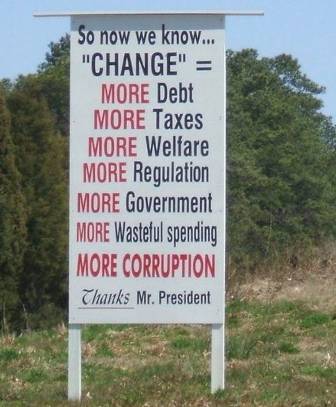I was asked by a reporter to state how I’d fix the economy in 500 words and replied:
Fixing the Economy
1. A full ‘payroll tax holiday’ where the US Treasury makes all FICA payments for us (15.3%). This will restore ‘spending power’ allowing households to make their mortgage payments, which ‘fixes the banks’ from the ‘bottom up.’ It also helps keep prices down as competitive pressures will cause many businesses to lower prices due to the tax savings even as sales increase.
2. A $500 per capita Federal distribution to all the States to sustain employment in essential services, service debt, and reduce the need for State tax hikes. This can be repeated at perhaps 6 month intervals until GDP surpasses previous high levels at which point state revenues that depend on GDP are restored.
3. A Federally funded $8/hr job for anyone willing and able to work that includes healthcare. The economy will improve rapidly with my first two proposals and the private sector far more readily hires people already working vs people idle and unemployed.
In 2001 Argentina, population 34 million, implemented this proposal, putting to work 2 million people who had never held a ‘real’ job. Within 2 years 750,000 were employed by the private sector.
4. Returning banking to public purpose. The following are disruptive and do not serve no public purpose:
a. No secondary market transactions
b. No proprietary trading
c. No lending vs financial assets
d. No business activities beyond approved lending and providing banking accounts and related services.
e. No contracting in LIBOR, only fed funds.
f. No subsidiaries of any kind.
g. No offshore lending.
h. No contracting in credit default insurance.
5. Federal Reserve- The liability side of banking is not the place for market discipline. The Fed should lend in the fed funds
market to all member banks to ensure permanent liquidity. Demanding collateral from banks is disruptive and redundant, as
the FDIC already regulates and supervises all bank assets.
6. The Treasury should issue nothing longer than 3 month bills. Longer term securities serve to keep long term rates higher than
otherwise.
7. FDIC
a. Remove the $250,000 cap on deposit insurance. Liquidity is no longer an issue when fed funds are available from the Fed.
b. Don’t tax the good banks for losses by bad banks. All that does is raise interest rates.
8. The Treasury should directly fund the housing agencies to eliminate hedging needs and directly target mortgage rates at
desired levels.
9. Homeowners being foreclosed should have the option to stay in their homes at fair market rents with ownership going to the
government at the lower of the mortgage balance or fair market value of the home.
10. Remove the ‘self imposed constraints’ that are disruptive to operations and serve no public purpose.
a. Treasury debt ceiling- Congress already voted for the spending and taxes
b. Allow Treasury ‘overdrafts’ at the Fed. This is left over from the gold standard days and is currently inapplicable.
11. Federal taxes function to regulate aggregate demand, not to raise revenue per se, and therefore should be increased only
to cool down an overheating economy, and not to ‘pay for’ anything.
[top]


